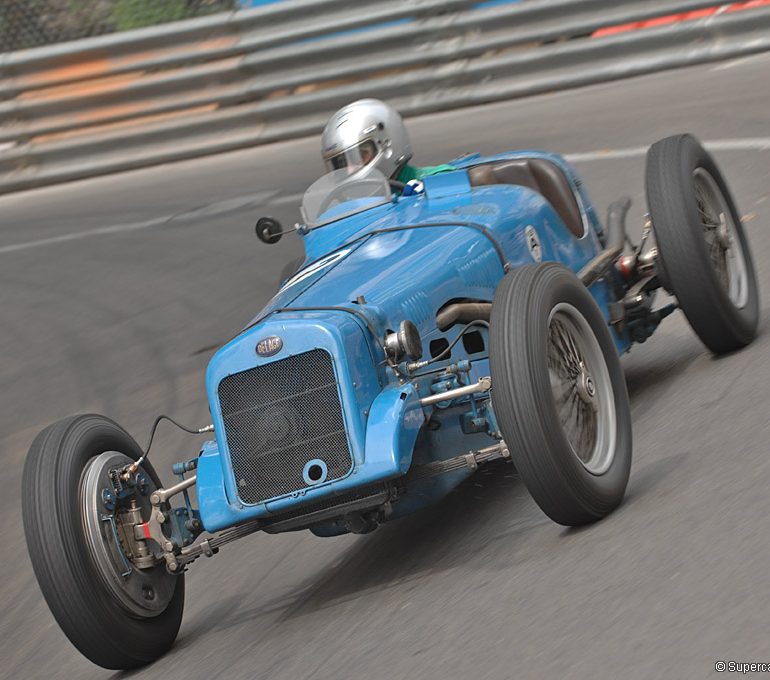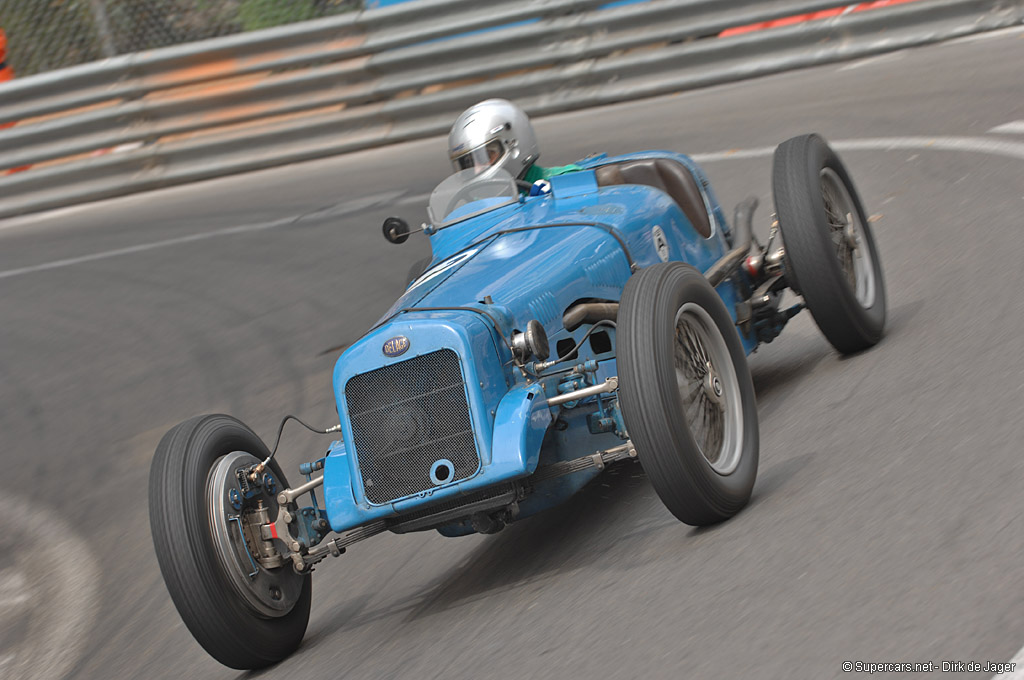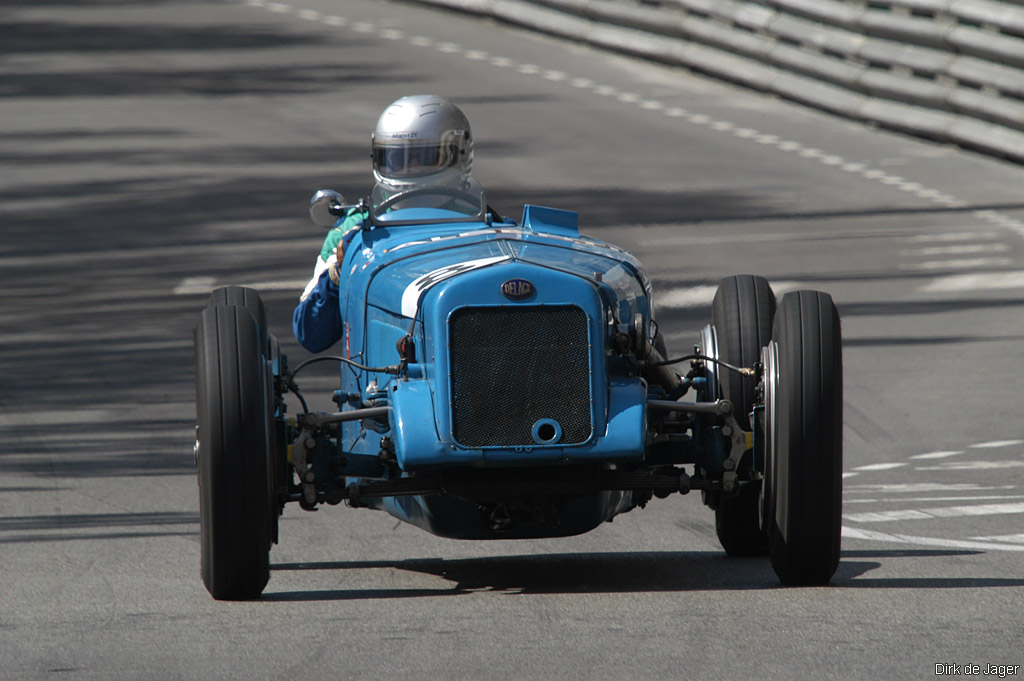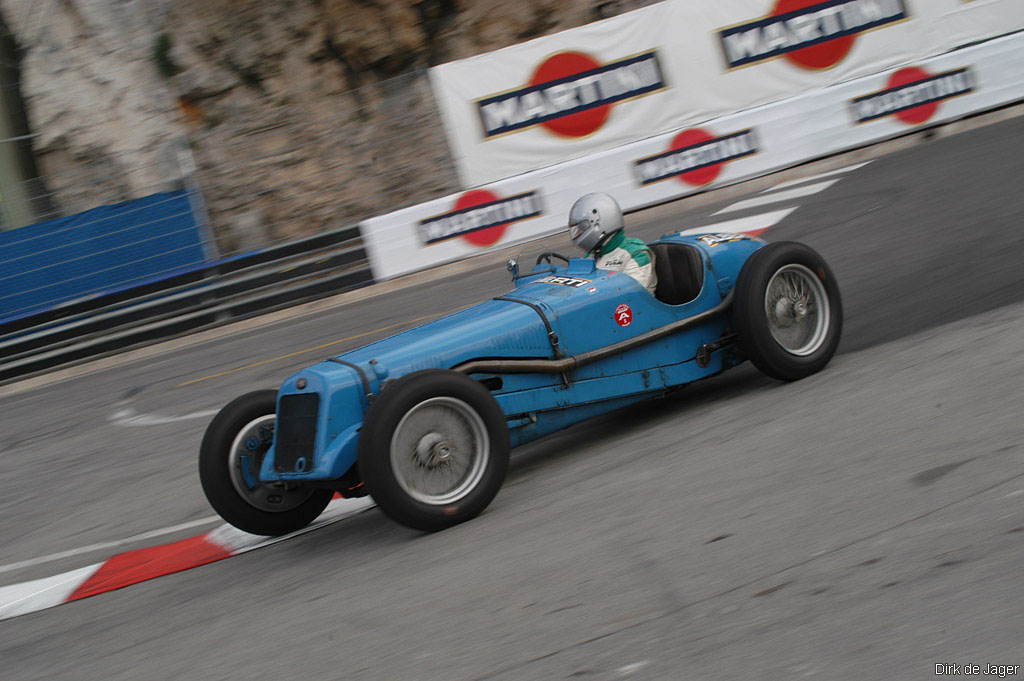1926 – 1927 Delage 15 S8
Delage’s 15 S8 was the most successful GP car in 1927. That year, it won the French, Spanish, European & British events. Even after its successful campaign, the 15 S8 continued to be competitive up to 1936 in voiturette classes!
The key to the S15’s performance was a legendary engine designed by Albert Lory. It used a nine-bearing crankshaft with all moving parts supported by roller bearings and driven by gears. Furthermore, exotic metals like nickel-chromium were used for the crankshaft, camshaft and connecting rods while an aluminum-copper alloy was used for the small pistons.
For the first race at Brooklands, twin Roots superchargers were fitted but these were quickly replaced by a single centrifugal unit for 1927. In both configurations, the power rating remained unchanged at 170 bhp @ 8000 rpm with 9000 rpm being used occasionally during racing.
This engine sat in a chassis similar the 2LCV it replaced. Both cars had the same brakes and transmission. Even thought the 2LCV and S8 produced roughly the same horsepower, surprisingly the new 15 S8 was 25% lighter.
Essentially the Delage took advantage of the 1926 regulations that allowed a 1.5-liter engine displacement and minimum weight of 600 kg. Even with stiff competition from Bugatti and Talbot-Lago, Delage turned the competition off racing.
During the cars first race at the 1926 European GP, the cars got very hot, and cockpit ventilation was desperately needed. In the end, all three cars were beaten by Bugatti, the only other manufacturer at the race. Delage finished their season at the first ever British GP. The cars were prepared with more cockpit vents, but that wasn’t enough to cool the driver’s burning feet. After 287 miles (462 km) Wagner and Sénéchal won just 12 seconds ahead of the Bugatti piloted by Malcolm Campbell.
1927 Season
Before the 1927 season, an entirely version of the 1500cc engine was presented. It swapped both the exhaust and intake sides, but also included larger valves, a single 220mm supercharger and one Cozette carburettor vs twin Zenith units. Futhermore the 2LCV brakes were updated with new units.
The reliability of the S8 helped Robert Benoist became a national hero. He won ahead of two other Delage’s at the French GP at Montlhéry and again in the same month at the Spanish GP. No competition showed up at Monza, leaving the sole Delage with easy victory. The British GP meant rain for the team which installed horizontal guards behind the front wheel. For the second year in a row Delage scored 1-2-3 and Benoist was crowned world champion.
Later, Benoist’s championship car was raced by Louis Chiron at the 1929 Indianapolis race. Despite being 20 mph off the pace, he placed a respectable 7th place overall.
Due to the extensive costs and maintenance of the engine, producing additional cars would have come at considerable expense to Louis Delage who was already considering abandoning motor sports. Thus only four 15 S8s were produced.
1924 Delage 2LCV Gallery
See full 1924 Delage 2LCV Gallery here
In Detail
| type | Series Production Car |
| production years | 1926 – 1927 |
| engineers | Albert Lory |
| production | 4 |
| engine | Inline-8 |
| position | Front Longitudinal |
| aspiration | Twin Roots Supercharger |
| block material | Cast Iron |
| valvetrain | DOHC, 2 Valves per Cyl |
| fuel feed | 1 Cozette Carburetor |
| displacement | 1488 cc / 90.8 in³ |
| bore | 55.8 mm / 2.2 in |
| stroke | 76 mm / 2.99 in |
| power | 126.8 kw / 170.0 bhp @ 8000 rpm |
| specific output | 114.25 bhp per litre |
| bhp/weight | 227.27 bhp per tonne |
| redline | 8400 |
| body / frame | Pressed Steel Chassis |
| driven wheels | RWD |
| front brakes | Drums w/Power Assist |
| rear brakes | Drumsw/Power Assist |
| steering | Worm & Wheel |
| f suspension | Rigid Axle w/Semi-Elliptic Leaf Springs, Hartford Shock Absorbers |
| r suspension | Rigid Axle w/Semi-Elliptic Leaf Springs, Hartford Shock Absorbers |
| curb weight | 748 kg / 1649 lbs |
| wheelbase | 2495 mm / 98.2 in |
| front track | 1345 mm / 53.0 in |
| rear track | 1345 mm / 53.0 in |
| transmission | 5-Speed Manual |
| tran clutch | Multi-Plate Clutch |
| top speed | ~209.2 kph / 130.0 mph |
| key drivers | Robert Benoist |
| race victories | 1OA 1926 GP of the RAC, 1OA 1927 Montlhery GP, 1OA Spanish GP, 1OA GP of Europe, 1OA British GP |







